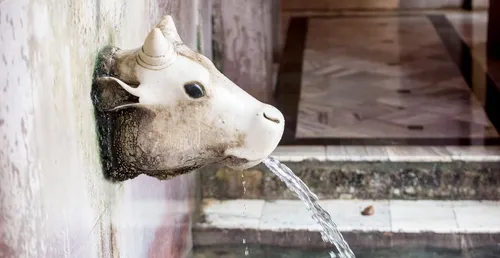
Jhajhirampura: A Hidden Gem in Dausa, Rajasthan
Nestled in the Dausa district of Rajasthan, Jhajhirampura is a quaint village that offers a glimpse into the rural life and historical charm of the region. While not as well-known as some of Rajasthan’s more prominent tourist destinations, Jhajhirampura has its own unique appeal, characterized by its serene environment, traditional architecture, and local cultural heritage.
Historical and Cultural Context
Jhajhirampura, like many villages in Rajasthan, has a rich historical backdrop that reflects the broader cultural tapestry of the region. The area is known for its traditional Rajasthani architecture, which includes havelis, stepwells (baoris), and temples that showcase the intricate craftsmanship of the local artisans.
Key Attractions in Jhajhirampura
Ancient Temples:
- Shree Krishna Temple: A significant local temple dedicated to Lord Krishna, reflecting the deep religious sentiments of the village. The temple is known for its serene atmosphere and traditional Rajasthani architectural style.
- Hanuman Temple: Another important religious site in Jhajhirampura, dedicated to Lord Hanuman. The temple is a center of local worship and cultural activities.
Traditional Havelis:
- Jhajhirampura features several havelis (traditional mansions) that exemplify the classic Rajasthani architectural style. These havelis are characterized by their ornate carvings, courtyards, and intricate jharokhas (overhanging enclosed balcony windows).
Stepwells (Baoris):
- The village is home to traditional stepwells, which were historically used for water conservation and as social gathering spots. These stepwells are architectural marvels, showcasing the ingenuity of ancient water management systems.
Local Markets:
- The village markets offer a variety of local handicrafts, textiles, and traditional Rajasthani products. Visitors can experience the vibrant local culture and shop for unique souvenirs.
Practical Information for Visitors
Timing: Jhajhirampura is a village, so it doesn’t have set visiting hours. It is best visited during the day, and visitors should plan their trip keeping in mind the local customs and practices.
Dress Code: Modest attire is recommended when visiting religious sites and rural areas. It is respectful to wear clothing that covers shoulders and knees.
Photography: While photography is generally allowed in rural areas, it is courteous to ask for permission before taking photographs of people, especially in religious or private settings.
Respect: Being a small village, Jhajhirampura values its traditions and customs. Visitors should respect local practices and engage with the community in a respectful manner.
Getting There
Jhajhirampura is accessible by road from major cities in Rajasthan. The nearest significant city is Dausa, which is approximately 40 kilometers away. Dausa is well-connected by rail and road, and from there, you can hire a taxi or take local transport to reach Jhajhirampura.
- By Road: You can travel to Dausa by car or bus and then proceed to Jhajhirampura by local transport.
- By Rail: Dausa is connected by rail to major cities like Jaipur. From Dausa Railway Station, you can take a taxi or local transport to Jhajhirampura.
Jhajhirampura offers a unique opportunity to explore the authentic rural life and historical charm of Rajasthan. With its traditional temples, havelis, stepwells, and vibrant local culture, the village provides a peaceful retreat from the bustling city life and a chance to experience the region’s rich heritage. Whether you’re interested in history, architecture, or simply seeking a serene destination, Jhajhirampura is a hidden gem worth discovering.
